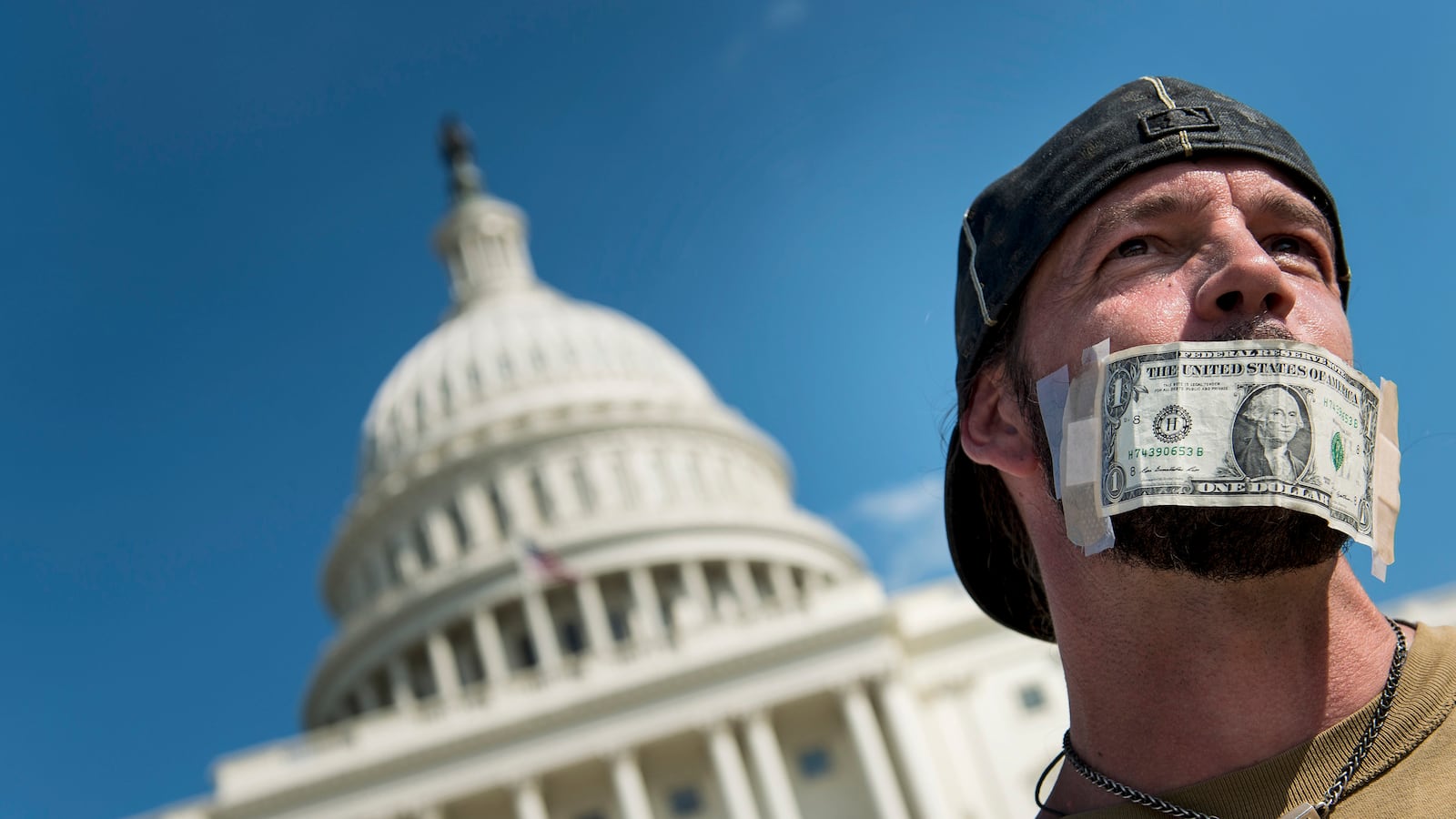So now that our government is open and able to pay its bills, what soon-to-be-forgotten lessons have we learned from this sorry fiasco?

Perhaps most important is the reminder that political temper tantrums in Washington exact a toll that goes far beyond unfavorable headlines and worse-than-dog-poo poll numbers. This decision hurt people. Some families couldn’t pay their bills. Others had nowhere safe to send their children while they worked. Poor women lost vouchers that helped buy food and formula for their newborns. Cancer treatments were put on hold for patients who didn’t have much time to waste.
All told, the shutdown and flirtation with default cost America north of $20 billion. The countries that weren’t busy mocking us were frightened by our behavior, wondering if the world’s wealthiest nation would become the world’s deadbeat nation, taking everyone else down with us in a global collapse worse than 2008.
And for what? For what purpose was this pain and humiliation inflicted upon the American people?
Yes, you, Rep. Marlin Stutzman from Indiana. Do you have an answer?
“We’re not going to be disrespected. We have to get something out of this. And I don’t know what that even is.”
Oh.
Which brings me to the second shutdown lesson. As a country, we may never get a more revealing, disturbing look at the true source of Washington’s dysfunction than we did over the last few weeks. Together, we endured a 21-hour non-filibuster speech from White Castle enthusiast Ted Cruz that was so devoid of self-awareness I’m not even sure he knew he was giving it. We saw Sarah Palin come all the way back from the small town of Irrelevancy, Alaska, to lead the charge against an open-air memorial that was blocked by a 3-foot barricade, while a few assholes waved Confederate flags outside the White House and reminded each other that Obama’s a Muslim, just for good measure.
We saw the shutdown rationale shift from defunding Obamacare to delaying Obamacare to cutting spending to reforming entitlements to charging congressional staffers more for health insurance to cutting taxes for stethoscope manufacturers to something, anything that would embarrass the president. As we inched closer to the abyss, we witnessed a parade of right-wing mathletes run the numbers and confidently deny the economic catastrophe that would result from America’s first-ever financial default. And as the speaker of the House made one last half-hearted effort to save his caucus from total defeat, we watched Jim DeMint’s Heritage Foundation kill the plan with a press release, a move just about everyone saw coming that only served to remind us who’s really in charge.
In Official Washington, decrying “partisanship” as the “real problem” is the prerequisite for being taken seriously as a smart, unbiased political commentator. But from where we stand right now, partisanship is not the problem. Democrats are not the problem. Republicans are not the problem. The relationship between President Obama and John Boehner is not the problem.
The Tea Party is the problem.
The Tea Party is the most destructive force in American politics today. Over the last few weeks, it has demonstrated again that its intent is not to shake up the establishment but to burn down the village. As a Democrat, I disagree with its policy positions, but its policy positions alone are not what make the Tea Party so dangerous. What makes the Tea Party dangerous is its members’ willful disregard for the most basic tenets of American democracy. They do not believe in the legitimacy of our president. They do not believe in the legitimacy of decisions handed down by our Supreme Court. Unlike President Obama, Harry Reid, Mitch McConnell, John Boehner, or a host of other Democratic and Republican lawmakers who grasp the basic reality of politics, they have never, not once shown a willingness to compromise on anything. Merely uttering the word is enough to draw a primary challenge.
All this, despite the fact that the Tea Party represents the views of a small, ever-shrinking fraction of Americans. Even within the Republican Party, its members’ favorability hovers around 50 percent, the lowest of all time. Their recent legislative strategy, a word that can be used only in its loosest sense, led to 144 Tea Party House members voting against a bipartisan compromise simply to open the government and avert default. But when Reuters polled people who weren’t satisfied with last week’s outcome, only 2 percent said it was because the House passed the Senate’s bipartisan bill. Only 5 percent said it was because Republicans compromised. Only 3 percent said it was because default would have taught our government an important lesson. Most people said their main dissatisfaction was with the ugly process the Tea Party dragged us all through.
And yet, somehow, this small minority of Tea Party House members, who represent less than one half of one legislative body in one branch of government, has been given enormous influence over the national agenda—a situation without precedent in American political history. It’s insanity.
The president and Boehner can hang out, drink beers, play golf, and shake hands on all kinds of deals. Boehner has been open to revenue in the past. Obama has put entitlement cuts on the table that made his party uncomfortable. The Senate has already passed bipartisan immigration legislation, and there are enough Republicans and Democrats in Congress who are willing to compromise and make progress on any number of issues.
But Boehner was, in his own words, “overrun” by the Tea Party during the shutdown, and so long as he and other Republicans fear challenges from the fringe more than the frustrations of the majority, nothing will get done. And we will find ourselves in the same predicament again and again, regardless of who is elected president or speaker or majority leader.
The Republican Party is at war with itself. And as tempting as it might be for Democrats to gloat from the sidelines, it is in all of our interests—Democrats, independents, and Republicans—to make sure the Tea Party doesn’t win. In 2014, candidates of both parties should challenge their rivals to sign a No Shutdown Pledge and a No Default Pledge. In House races, candidates should be asked whether they’re willing to violate the ridiculous Hastert rule and allow simple up-or-down votes on legislation that could pass with bipartisan support, no matter who holds the majority. In Senate races, they should be asked whether they’re willing to make it harder for bipartisan legislation to be filibustered by a Ted Cruz or a Mike Lee.
Democrats and Republicans can argue all they want over the role of government, but we cannot allow the Tea Party to continue holding the country hostage over its kamikaze mission to destroy government. The vast majority of Americans reject that mission, and we’re not about to sacrifice ourselves or our democracy as collateral damage. It’s time for all of us to get together and fight the crazy.





